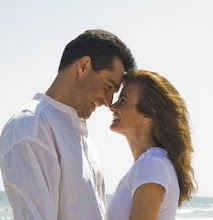Breast Cancer awareness month comes with the dawning of October. Remembering the fallen and advancing with great strides toward prevention and cure is both a personal and national act of healing. Details is a powerful tool, and Cancer of the breast Awareness Month should be about learning from the reality and misconceptions surrounding breast cancer. Article resource – October is Breast Cancer Awareness Month by Personal Money Store.
The facts behind Cancer of the breast Awareness Month
Women were diagnosed with 192,370 new cases of invasive cancer of the breast and 62,280 early-stage breast cancer in 2009 alone, reports American Cancer Society. Of those, more than 40,000 were forecasted to result in death. Breast cancer was also estimated to be diagnosed in nearly 2,000 men this past year. Death was a prediction of some of those. About 440 of those were given that diagnosis.
Stuff that will not give you cancer of the breast
- Underwire bras promote breast cancer growth
The false belief here is that by constricting breast tissue, underwire bras cause cancer-causing toxins to build up. The truth, Dr. Deborah Axelrod tells Columbia Broadcasting System, is that no such link exists.
- Breast cancer could be brought on by something else. This is deodorant
Dr. Schnabel explains that this also isn’t true. Cancer isn’t at all linked to antiperspirant. Many think it is the toxins which isn’t true.
- Plastic water bottles trigger breast cancer
While some experts believe that there is cancer-causing dioxin in plastic bottles that leaches into the water, just as many cast doubt on this claim. BPA (bisphenol) is an additional substance of concern in plastic, but even that has not been definitively connected to cancer of the breast.
- Mammograms cause cancer of the breast
Columbia Broadcasting System News hears from Dr. Schnabel that women’s breasts are exposed to more radiation in a three-month period than a mammogram gives which is .1 to .2 rads per picture.
- Lumpy breasts increase chances
Lumpy breasts make it harder to determine when you have breast cancer. It doesn’t at all mean you have breast cancer. A doctor should investigate if you find new breast lumps, reports Dr. Axelrod, as it could mean cancer.
- No family history, no breast cancer
80 percent of cancer of the breast is sporadic, although it can trace through a family also.
Articles cited
American Cancer Society
cancer.org/Research/CancerFactsFigures/BreastCancerFactsFigures/index
CBS News
cbsnews.com/8301-504763_162-20018296-10391704.html

No comments:
Post a Comment